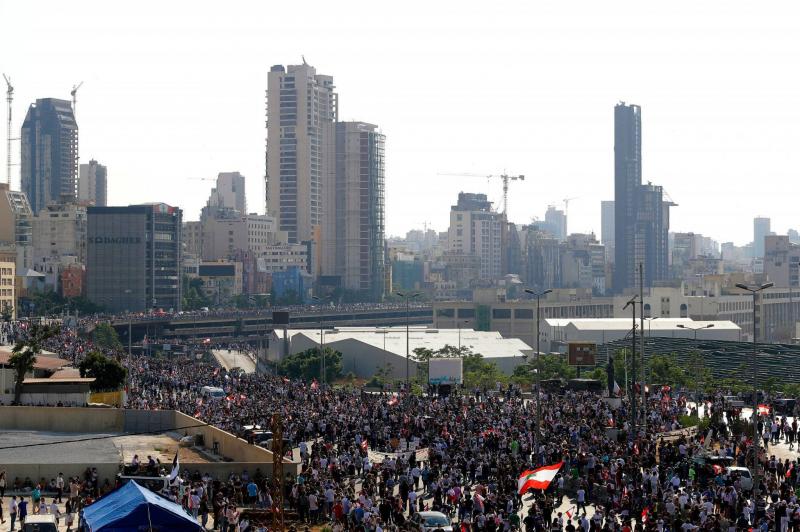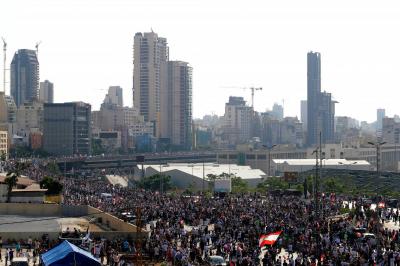Beirut is witnessing a massive demonstration this Wednesday evening, marking the first anniversary of the port explosion that left over 200 dead and 6,500 injured. Notably, during this protest, which demands to uncover the truth behind the explosion and hold those responsible accountable, party flags were absent among the protesters. A moment of silence was observed during the protest at the exact time the catastrophic explosion occurred.
Tensions arose with scuffles and pushing between protesters and the army near the Beirut port. Clashes also occurred between security forces and demonstrators in downtown Beirut. Additionally, confrontations took place between protesters and security in front of the parliament building, where protesters threw stones at the parliament entrance and attempted to breach the main gate. In response, security forces fired tear gas and used water cannons to disperse the protesters in front of the parliament.
While there were reports of Lebanese security firing rubber bullets at protesters near the parliament, security officials denied this. The Lebanese Red Cross announced that it had transported 9 injured individuals from downtown and the Gemmayze area, where protests were taking place, to hospitals, while 45 injured were treated on site.
On this Wednesday, Lebanese banks, businesses, and government offices closed their doors as Lebanon commemorated the one-year anniversary of the horrific Beirut port explosion. This grim anniversary comes amidst an unprecedented economic and financial collapse, along with a political deadlock that has left the country without a functioning government for a year.
The explosion, one of the largest non-nuclear explosions in history, was caused by the ignition of hundreds of tons of ammonium nitrate stored in the port. Documents revealed that the highly combustible nitrate had been stored haphazardly at the port since 2014, and many high-ranking officials had been aware of its presence over the years but did nothing. Despite a year having passed, there has been no accountability, and investigations have yet to address questions such as who ordered the shipment of the chemical materials and why officials ignored repeated internal warnings about their dangers.




